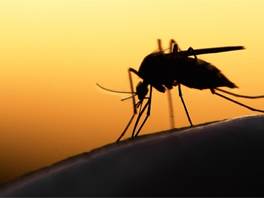Free Courses Sale ends Soon, Get It Now


Free Courses Sale ends Soon, Get It Now



Disclaimer: Copyright infringement not intended.
Context
Malaria
Malaria kills nearly 600,000 people every year, the majority of whom are children under the age of five in sub-Saharan Africa.
The need to develop an effective vaccine against the disease has long been a top priority.
RTS, S/AS01 Malaria Vaccine
Note: However, RTS, S/AS01 fails to meet the WHO’s benchmark for a malaria vaccine efficacy of 75 percent set in 2015.
R21/Matrix M
Ways the vaccines work
|
ALL ABOUT ADJUVANTS An adjuvant is a substance that enhances the immune system’s response to the presence of an antigen. They are commonly used to improve the effectiveness of a vaccine. Generally, they are injected alongside an antigen to help the immune system generate antibodies that fight the antigen. [Note: An antigen is any foreign substance that causes our immune system to produce antibodies against it.]
The purpose of adding adjuvants into vaccines is to boost the immune system response. Aluminum, one of the most commonly used adjuvants, was first discovered to have adjuvant properties back in 1926. Since then, numerous vaccines, such as hepatitis A, hepatitis B, diphtheria-tetanus, Haemophilus influenza type b, and pneumococcal vaccines have been developed with the use of Aluminium adjuvants. Today, a number of different kinds of adjuvants have been discovered and successfully used to develop new vaccines.
When adjuvants are added to a vaccine they activate antigen-presenting cells to signal to the immune system’s T cells that foreign substances have infiltrated. To do this adjuvant boosts the activation of antigen-presenting cells -these are cells of the immune system that encompass foreign substances and break them up, presenting the resulting particles to the immune system’s T cells. This activates the T cells, which has the impact of activating the antibody-producing B cells. Note: T Cells act as “killer cells”, attacking cells that have been infected with a virus or another kind of pathogen, or they can act as “helper cells” by supporting B cells to produce antibodies. |
India’s efforts in tackling Malaria
Malaria Free Status
Malaria Free Countries
China’s Malaria Elimination Strategy in brief
1-3-7 Strategy: The strategy refers to:
Road Ahead for India
|
Controlled Human Malaria Infection (CHMI) Controlled human malaria infection (CHMI) entails deliberate infection with malaria parasites either by mosquito bite or by direct injection of sporozoites or parasitized erythrocytes. When required, the resulting blood-stage infection is curtailed by the administration of antimalarial drugs. |
Read: https://www.iasgyan.in/blogs/types-of-vaccines
© 2024 iasgyan. All right reserved